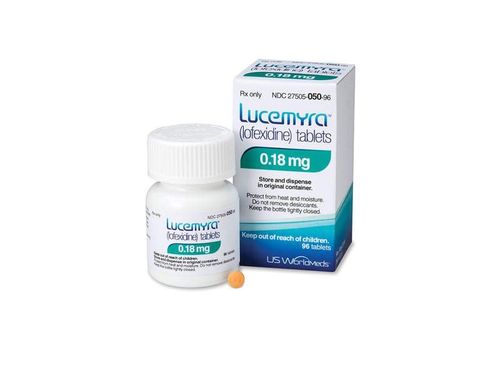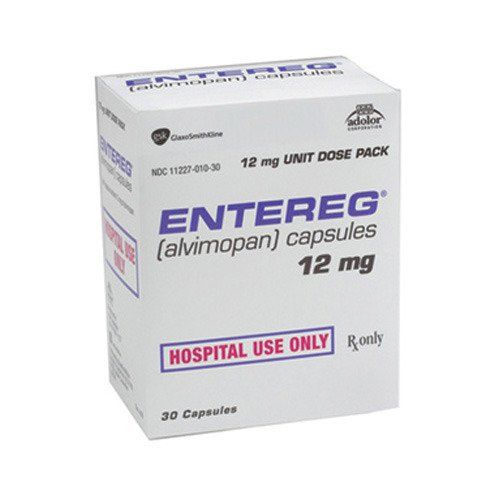This is an automatically translated article.
Zubsolv is used to replace and support addiction for patients addicted to opiates. Using Zubsolv exactly as prescribed by your doctor will help you ensure your health and maximize the effectiveness of your treatment.
1. What is Zubsolv?
Zubsolv medicine has the main ingredients Buprenorphine and Naloxone, in the form of tablets that are placed under the tongue. Buprenorphine is an Opioid, with a narcotic pain-relieving effect, which can sometimes be called a narcotic. Naloxone is combined with this ingredient to help block the effects of opioids, including pain relief or feelings of well-being that can lead to opioid abuse. Naloxone can reverse the effects of narcotic drugs.
Thus, Zubsolv is used to treat opioid addiction. However, this medicine should not be used for pain relief.
2. Indications and contraindications of the drug Zubsolv
Indications:
Zubsolv is indicated for use in adults with addiction to drugs such as opiates. Contraindications:
Do not use if you are allergic to any of the ingredients of Zubsolv.
3. Dosage and how to take Zubsolv
How to use:
Use your dry hands when holding Zubsolv tablets sublingually. Place the lozenge under the tongue. Let the tablet dissolve slowly. Do not chew or swallow the tablet whole. Rinse your mouth with clean water after the Zubsolv tablets dissolve. Wait 1 hour after the medicine has dissolved to brush your teeth to avoid the risk of damaging your teeth and gums. Do not stop using Zubsolv suddenly, or you may have unpleasant withdrawal symptoms. Dosage:
Usual Adult Dose for opiate dependence:
Day 1: The initial dose of buprenorphine/naloxone is 1.4mg/0.36mg and can then be increased to 4 ,2mg/1.08mg, should be divided into small doses of 1.4mg/0.36mg or 2.8mg/0.72mg and given 1.5 to 2 hours apart. Day 2: Use with buprenorphine/naloxone 11.4mg/2.9mg sublingual as a single dose. Maintenance therapy continued starting on day 3: The maintenance dose of buprenorphine/naloxone should be adjusted to the extent appropriate for the patient in the treatment and prevention of signs and symptoms of opioid withdrawal; The recommended target dose is 11.4 mg/2.9 mg sublingually once a day; may be increased or decreased to achieve a dose range of 2.9mg/0.71mg to 17.2mg/4.2mg. The maximum dose is 17.2mg/4.2mg per day.
4. Side effects of the drug Zubsolv
Possible side effects of the drug depending on the severity. May be mild to severe, including:
Get medical help right away if you have signs of a serious allergic reaction to Zubsolv:
Hives; rash ; shortness of breath; swelling of the face, lips, tongue, or throat. In addition, opioid medications can also slow or stop you breathing and can lead to death, symptoms such as slow breathing, prolonged pauses in breathing, blue lips, if you have difficulty waking up. Call your doctor if you notice:
Any problems with your teeth or gums; Weak or shallow breathing, sleep apnea; Feeling like you might faint; Confusion, loss of coordination, extreme weakness; Blurry vision or stuttering; liver problems causing upper abdominal pain, loss of appetite, dark urine, clay-colored stools, jaundice (yellowing of the skin or eyes); High levels of serotonin in the body with symptoms such as agitation, hallucinations, fever, sweating, shivering, rapid heartbeat, muscle stiffness, convulsions, loss of coordination, nausea, vomiting, and diarrhea run; low cortisol levels cause nausea, vomiting, loss of appetite, dizziness, fatigue, or worsening weakness; opioid withdrawal symptoms persist such as shivering, goosebumps, increased sweating, feeling hot or cold, runny nose, watery eyes, diarrhea, muscle pain; Severe breathing problems are more likely in older people and people who are debilitated or have cachexia or have a chronic respiratory disorder. Common Zubsolv side effects may include:
Feeling dizzy, sleepy, blurred vision, feeling drunk, difficulty concentrating; Withdrawal symptoms; Pain in the tongue, redness or numbness inside the mouth; Nausea, vomiting, constipation; Headache, back pain; fast or pounding heartbeat, increased sweating; or sleep problems (such as insomnia). This is not a complete list of Zubsolv side effects. Inform your doctor for medical advice about side effects.
5. Notes when taking Zubsolv
Before taking this medicine you need to tell your doctor about any allergies, especially to buprenorphine or naloxone. To make sure it is safe to take Zubsolv, tell your doctor if you have ever:
Have problems with your teeth, including a history of tooth decay; Shortness of breath, sleep apnea; Benign prostatic hyperplasia, urination problems; Liver or kidney disease; Abnormal curvature of the spine can affect breathing; Possible problems with your gallbladder, adrenal glands, or thyroid gland; Head trauma, brain tumor or seizures/alcohol addiction. Zubsolv may slow or stop your breathing and may be habit-forming. Drug use can cause addiction or death if overdosed, especially in children or other people who use the drug indiscriminately without a doctor's prescription.
Potentially fatal side effects occur at a higher rate if you take Zubsolv with alcohol or with other medicines that cause sleep or slow your breathing. This combination should be avoided, to reduce the risk of side effects.
If you use opioid medicines while pregnant, the baby after birth may become dependent on the drug. This can cause withdrawal symptoms and be life-threatening in the baby after it is born. You should tell your doctor if you are pregnant or plan to become pregnant. It is best to use birth control if you are likely to get pregnant while you are taking this medicine.
Ask your doctor before deciding to use Opioids if you are breast-feeding because the drug can pass into breast milk and cause serious side effects for the baby.
Severe dizziness or drowsiness can cause a fall, accident or serious injury when riding in traffic or performing dangerous work that requires concentration.
This medicine may cause damage to teeth and gums. Therefore, it is necessary to check and clean your teeth more often.
Drug interactions: Other drugs that will affect Zubsolv include
You may experience breathing problems or withdrawal symptoms if you start or stop taking certain other medicines including this one antibiotics, antifungals, heart or blood pressure medications, seizure or HIV medications, or hepatitis C medications. Opioids can interact with many other medications and cause dangerous side effects. or die, tell your doctor about medicines you take such as cold or allergy medicine, asthma medicine, bronchodilators, or diuretics; medicine for motion sickness, irritable bowel syndrome, or overactive bladder; other opioids including prescription opioid pain relievers or cough medicines; Some other drugs that also cause interactions include: Sedatives such as Diazepam, Alprazolam, Lorazepam, Xanax, Klonopin, Ativan and others; sleeping pills, muscle relaxers, medicines for mood disorders or mental illness; drugs that affect serotonin levels in your body as a stimulant; medicine for depression, Parkinson's disease, medicine for migraines, serious infections, or nausea and vomiting. In summary, Zubsolv is used to support addiction treatment for opiate addicts. The drug is used under the direction and supervision of a doctor. It is necessary to strictly follow the indications and when there is an abnormality, report it to the doctor for treatment.
Please dial HOTLINE for more information or register for an appointment HERE. Download MyVinmec app to make appointments faster and to manage your bookings easily.













